- News
- Reviews
- Bikes
- Accessories
- Accessories - misc
- Computer mounts
- Bags
- Bar ends
- Bike bags & cases
- Bottle cages
- Bottles
- Cameras
- Car racks
- Child seats
- Computers
- Glasses
- GPS units
- Helmets
- Lights - front
- Lights - rear
- Lights - sets
- Locks
- Mirrors
- Mudguards
- Racks
- Pumps & CO2 inflators
- Puncture kits
- Reflectives
- Smart watches
- Stands and racks
- Trailers
- Clothing
- Components
- Bar tape & grips
- Bottom brackets
- Brake & gear cables
- Brake & STI levers
- Brake pads & spares
- Brakes
- Cassettes & freewheels
- Chains
- Chainsets & chainrings
- Derailleurs - front
- Derailleurs - rear
- Forks
- Gear levers & shifters
- Groupsets
- Handlebars & extensions
- Headsets
- Hubs
- Inner tubes
- Pedals
- Quick releases & skewers
- Saddles
- Seatposts
- Stems
- Wheels
- Tyres
- Health, fitness and nutrition
- Tools and workshop
- Miscellaneous
- Buyers Guides
- Features
- Forum
- Recommends
- Podcast
news
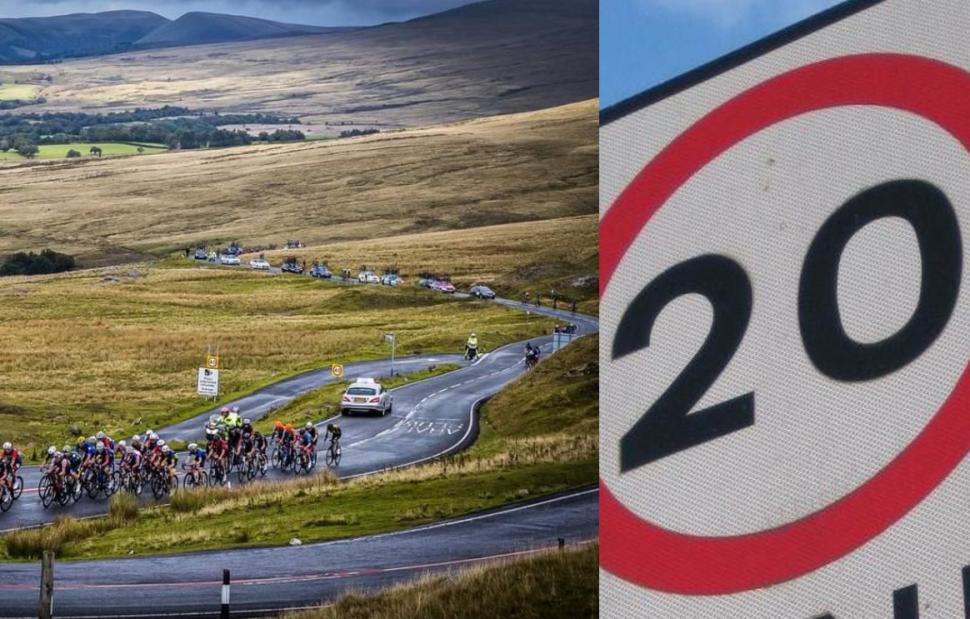 Junior Tour of Wales cycle race rerouted due to 20mph speed limits (Beicio Cymru)
Junior Tour of Wales cycle race rerouted due to 20mph speed limits (Beicio Cymru)Junior Tour of Wales cycle race rerouted due to 20mph speed limits, as local cycling club chair rues “sad state of affairs” that sport is “impacted by short-sighted policy” and governing body admits Welsh road racing is “unsustainable”
Club cyclists in Wales have criticised the “sad state of affairs” that have led to three stages of the Junior Tour of Wales being rerouted and shortened due to the country’s default 20mph speed limit, as the sport’s governing body admitted that several factors, including the introduction of the 20mph limit, have made Welsh road racing “unsustainable”.
While the Welsh government worked with the organisers to ensure the race could go ahead safely, due to seven miles of 20mph roads featuring on the course, and the event’s late registration, three of the Junior Tour’s five stages have been modified as support vehicles would not have been able to keep up during those sections without breaking the speed limit.
The finish of stage four of the race – which takes place over four days and has been won in the past by future pros Tom Pidcock, Dan Martin (ahead of second-place Geraint Thomas), Fred Wright, Alex Dowsett, and Roger Hammond – has also been moved from Nantgaredig, Carmarthenshire, the home of three-time Olympic medallist Emma Finucane, due to the 20mph speed limits.
Tom Pidcock wins the 2017 Junior Tour of Wales (British Cycling)
“A Welsh government scheme designed to enable cycle races to manage race and public safety through 20mph zones has failed, leaving us with a major problem,” organiser Richard Hopkins said of the last-minute alterations ahead of Friday evening’s first stage.
“Even though there was only seven miles of 20mph across the whole 237-mile, four-day race, and even then split into a number of very short sections, we couldn’t guarantee to manage all of them safely.”
> Why the 20mph zone time trial ban could be the “tip of the iceberg” for British racing
He continued: “In the process we've lost a large part of the character and challenge the event is famous for, including our stage finish in Nantgaredig, the home village of Welsh Olympic champion Emma Finucane, as well as the climb of the Black Mountain in Carmarthenshire.
“It’s massively demoralising, after putting so much effort into trying to make the race as a whole viable, and it also leaves me wondering what’s going to happen next, because every time I think we might be in a good place, something else rolls along to knock it back.”
“We now have a safer Wales. But for racing it’s challenging”
While cyclists in the UK do not share the same legal obligation as motorists to stick to speed limits, and cannot be charged with an offence of excess speed, the necessity to ensure the convoy of support vehicles can follow the race safely in these 20mph zones has proven a challenge for organisers and governing bodies in the wake of the introduction of a default 20mph speed limit across Wales last year.
(Beicio Cymru)
In a statement issued this week reflecting on the issues affecting road racing in Wales at the moment, Beicio Cymru (formerly Welsh Cycling) said that the new default speed limit has emerged as one of the factors currently making the sport “unsustainable”.
“Broadly speaking, the default speed is a positive – proven in the reduction in road casualties and insurance claims as a result,” the governing body said. “We now have a safer Wales that over time will help develop the confidence for more people to participate in cycling.
“For racing though, it’s challenging. Beicio Cymru and associates have been trying to resolve the impact on racing for two years, right down to the last minute, but it was not possible. We have asked for Temporary Road Orders to ensure the riders and the convoy can maintain speeds through 20mph sections but have been unable to secure these.
> Do cyclists have to stick to the speed limit?
“Whilst some will recognise that cyclists cannot be prosecuted for speeding, we still have a convoy of vehicles to manage and we also have no benchmark for what happens if an incident happens within a 20mph zone. We make decisions to protect riders, organisers, ourselves and cycling in general. It is not as black and white as just about the limits, especially when 20mph zones are not all the same (i.e. some sections, uphill, the speed limit will not be exceeded and is therefore not an issue, other sections that are downhill may see riders doubling the speed limit).
“However, we have been urging event organisers to plan for this and try and use risk assessed routes that avoid 20mph sections, whilst working through scenarios to manage the convoy.
“Unfortunately, the late registration of the Junior Tour gave little space to properly investigate alternative routes and there have been several moments in the last few weeks where I was sure the tour would be cancelled due to a range of issues – but we finally have five safe, quality stages, albeit different stages than that originally planned.”
(Alex Whitehead/SWpix.com)
However, while the 20mph speed zones have been blamed for the rerouted race, one British race organiser told road.cc that speeding vehicles in the convoy marred stages of the Junior Tour of Wales last year, before the default limit was introduced.
“It’s unfortunate that the event had to change the route and skip some of the classic climbs like the Black Mountain, but from what I’ve observed in previous years, the driving by the team vehicles has been very poor,” Matthew Page told road.cc.
“They were speeding along narrow roads – some without pavements – where parked cars and speed humps are common. I’d estimate they were going over 50mph past a school and houses, with no police, NRG vehicles, or marshals present at difficult junctions. Additionally, there was no prior warning given to residents, which really isn’t acceptable.”
Page added that he contacted race organiser Hopkins about the dangerous driving he witnessed during the race, but received no response.
“An unwelcome sign of the law of unintended consequences”
The decision to reroute the Junior Tour of Wales has also been viewed by cyclists in the country as another telling indicator of the impact of the 20mph limit on racing, following its damaging effect on local club-run time trials.
Jonty Gordon, the chairman of Clwb Beicio Egni Eryri and a director at 1816 Cycles, told road.cc that the inability to find routes that don’t feature 20mph roads has greatly reduced the number of feasible time trial courses in Wales – especially after governing body Cycling Time Trials issued guidance advising participants to adhere to the speed limit while racing – and affected the percentage of women and younger riders taking part due to safety concerns.
“It is a sad state of state of affairs when grass root sports are impacted by a short-sighted policy implemented without real consideration nor consultation by the Welsh government,” Gordon told road.cc.
“Our club has been unable to run anywhere near as many TTs this year due to all but one of the courses running through 20mph zones, all of which used to be 30mph zones and are not what anyone could reasonably consider as dangerous to pedestrians nor cyclists.
“Where last year we had a healthy number of women taking part, sometimes 15-plus, most of whom were first timers, this is now nearer two or three. The only course that we can run is a mix of 40-60mph roads which frankly often feels unsafe given the speed differential.”
He continued: “Seeing the Junior Tour of Wales be rerouted for similar reasons is an unwelcome sign of the law of unintended consequences. The additional safety offered by the 20mph limit in some very specific areas is trite, but its blanket application is now impacting higher up the ladder of sports in Wales. Hopefully the Welsh government take note and reconsider their position.”
Responding to the need to change this week’s Junior Tour of Wales, a Welsh government spokesperson said: “The priority for any race is always to ensure that it is safe for all participants and other road users in accordance with police/highway authority requirements.
“The introduction of 20mph does not change this position. We have worked with the race organisers to develop various options to ensure the race can go ahead.”
“Like Whac-a-Mole for bike racing”
Meanwhile, this week Welsh Cycling’s director of development and events, Robbie Goerge, admitted in a statement that numbers taking part in road events in Wales have seen a “massive reduction”, and that it took a “monumental effort” to ensure both the Junior Tour of Wales and the Welsh road championships, the body’s two flagship events, will still go ahead.
> Do cyclists have to stick to the speed limit?
As well as citing the impact of the Welsh government’s introduction of the default 20mph limit, George said: “What we know for sure is we don’t have enough events, or event organisers, costs are going up and of the events we have had we haven’t had enough participants. Events have been cancelled due to this, whilst events that have run or are running, such as the Welsh Road Championships, will run at a significant loss – it is simply unsustainable.
(Beicio Cymru)
“Whilst entries for the junior tour are always healthy, the Welsh Road Championships have seen a reduction in entries by half, since 2018, in both the Senior and Masters categories, whilst women’s has seen a small reduction, although a growth from last year. To make matters worse, costs in just about everything are going up.
“We of course appreciate the cost-of-living crisis is forcing people into decisions on whether to race or not, there are other events to target, and we lack a thriving grassroots road scene which could lead people up to the event.
“This consequently led to a decision point. How can the event go ahead? A two-day event was set to run at a loss of over several thousand. This may seem small in the context, but such are the financial pressures within Wales and specifically Beicio Cymru that any loss on a single event cannot be easily absorbed... Ultimately, we have had to align categories, leading to a shorter race for seniors but longer for masters – a concession on both fronts to allow the race to continue.
“At the last minute, we learned of roadworks on the course which would have made the race unviable – but secured a switch to another course in Llandrindod Wells!”
Calling on cyclists across Wales to “please help” to ensure the future of road events in the country, Goerge concluded: “It has felt at times that as we resolve one issue, another one emerges. Like Whac-a-Mole for bike racing. It is exhausting, and we are only talking about races in Wales – we know this is felt across the UK.”
After obtaining a PhD, lecturing, and hosting a history podcast at Queen’s University Belfast, Ryan joined road.cc in December 2021 and since then has kept the site’s readers and listeners informed and enthralled (well at least occasionally) on news, the live blog, and the road.cc Podcast. After boarding a wrong bus at the world championships and ruining a good pair of jeans at the cyclocross, he now serves as road.cc’s senior news writer. Before his foray into cycling journalism, he wallowed in the equally pitiless world of academia, where he wrote a book about Victorian politics and droned on about cycling and bikes to classes of bored students (while taking every chance he could get to talk about cycling in print or on the radio). He can be found riding his bike very slowly around the narrow, scenic country lanes of Co. Down.
Latest Comments
- Backladder 5 min 18 sec ago
But but but, my beer belly is far more aerodynamic than a six pack and on a flat tt course weight is not and issue and aero is king!
- qwerty360 1 hour 24 min ago
Reality - I expect most first year lectures have more than 80 students at them; So 80 bicycle spaces is a rounding error on potential demand....
- StuInNorway 2 hours 1 min ago
In Norway at least, only the Govt roads authority are allowed to make car plates. Trailers also have their own reg and officially issued plates....
- chrisonabike 2 hours 8 min ago
Not untrue - they "represent" the public, but what does that mean? The public are rather varied and may have quite different interests!...
- whosatthewheel 3 hours 4 min ago
Especially that it is a traffic light controlled junction so he must have been completely blinded not to see the red on his left hand side and a...
- biking59boomer 3 hours 35 min ago
Send the details to UK network rail and Transport for Wales as well!
- KDee 4 hours 23 min ago
So that Pulsium from Lapierre has a 415mm wheelbase? I assume it's on 20 inch wheels then!
- ktache 5 hours 19 min ago
It's been one hell of a ride Cav, thanks for letting us share some of it. https://www.theguardian.com/sport/2024/nov/09/mark-cavendish-final-race-...
- chrisonabike 6 hours 2 min ago
Much sooth counsel here....
- hawkinspeter 6 hours 4 min ago
How can a cycling ban possibly be the answer to illegal power bikes? They're already illegal to use in public spaces, so what purpose does...
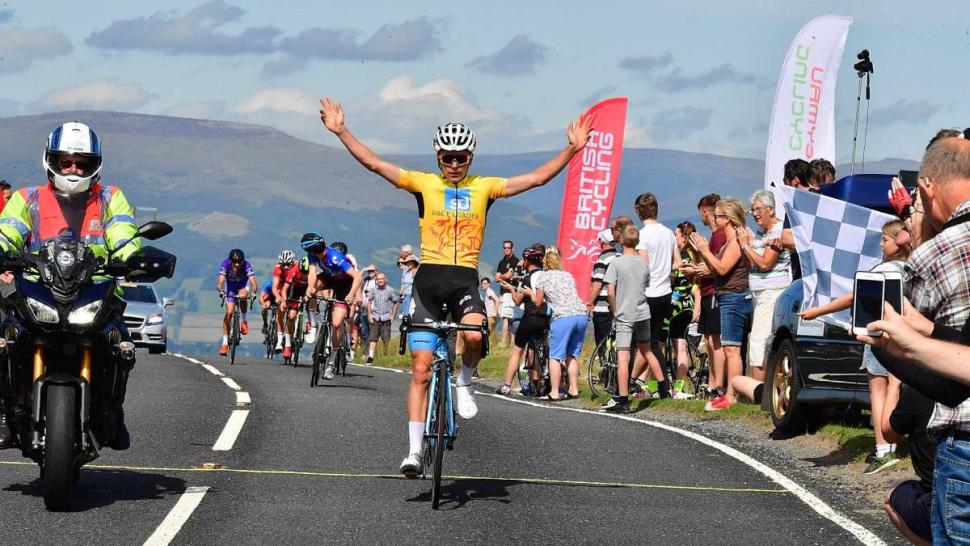
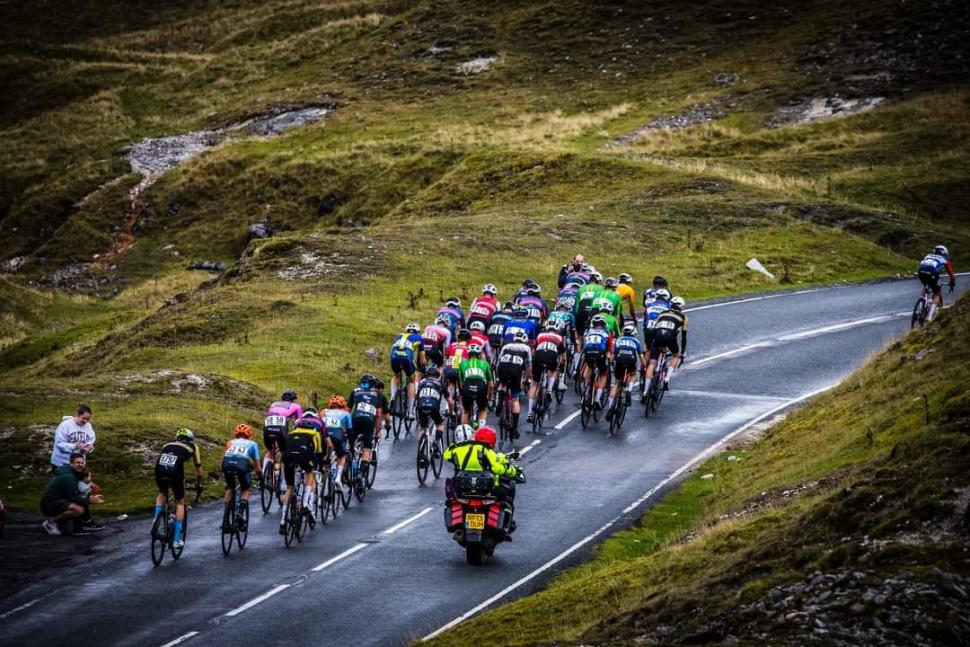
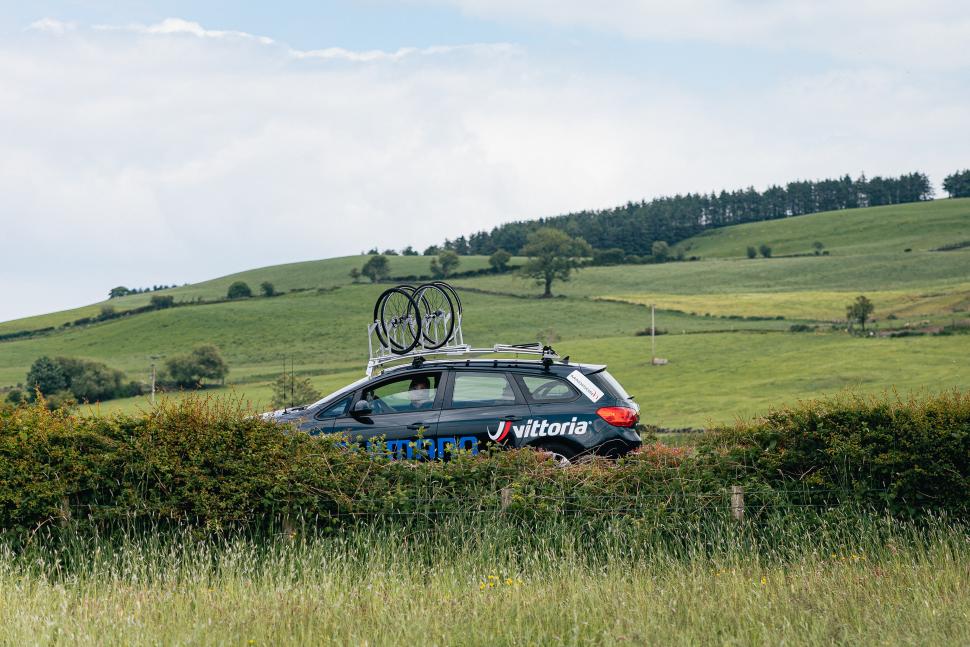
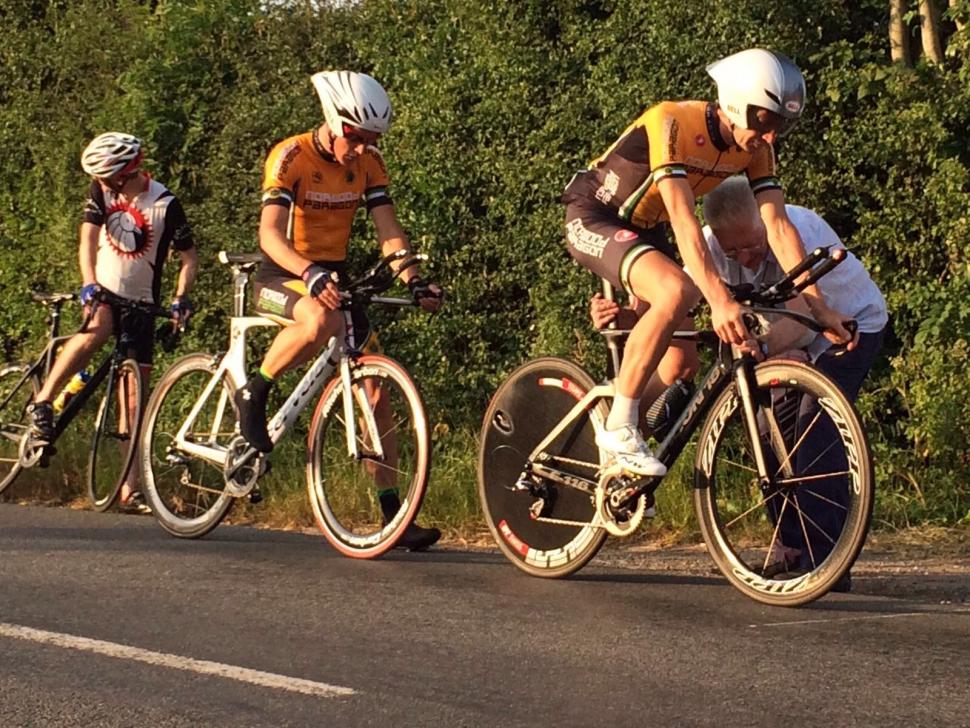
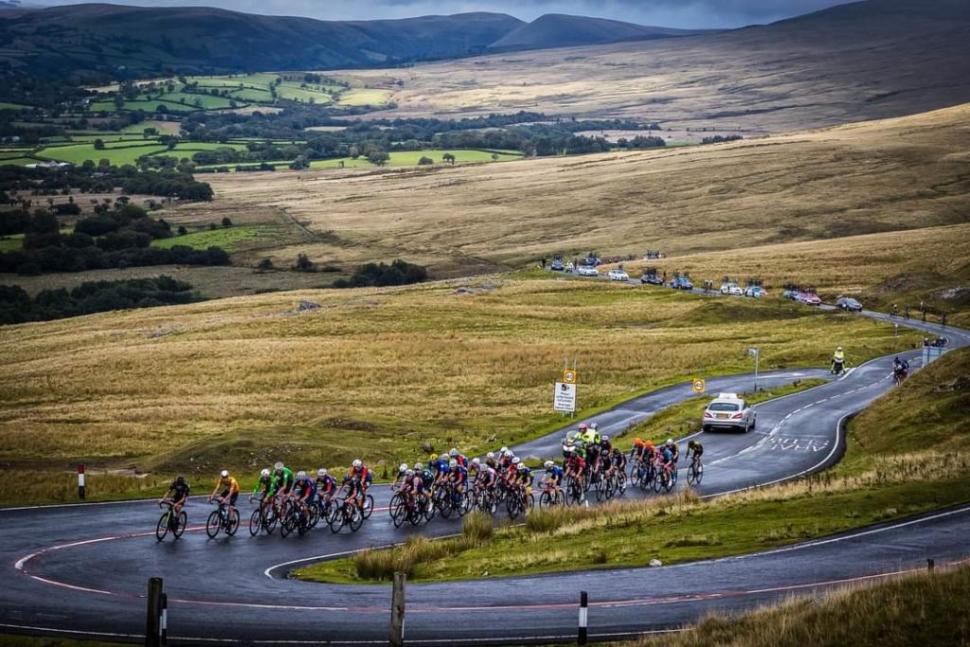
Add new comment
29 comments